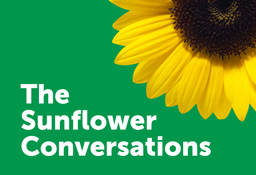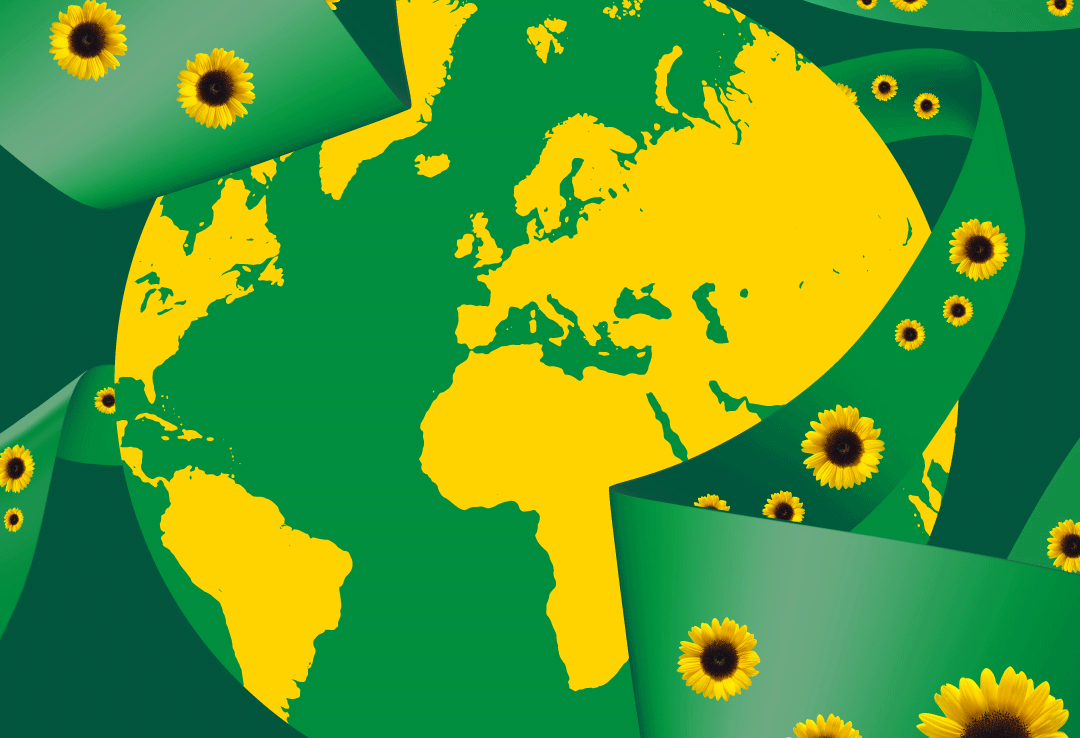Animals. From man's best friend through to hamsters and gerbils, we all love our pets. With personalities and abilities that are unique to each and every one of them. They've all got a story to tell.
While you may be familiar with assistance and service animals, such as guide and hearing dogs, our animal friends can do so much more than you might first think. People with disabilities, both visible and invisible, and chronic medical conditions often find a lot of comfort and support from their pets. With a wide variety of animals supporting people in a multitude of ways.
Service animals
Service animals can assist people with physical disabilities, autism, mental illness and other types of invisible disabilities. These animals can help make your home more accessible by completing tasks like opening and closing doors, turning lights on and off, or making a noise to indicate that attention is needed, in some shape or form. They can also provide physical support with balance and stability, retrieve medication, as well as pull wheelchairs.
Service dogs can also assist individuals should they have a seizure by raising the alarm or lying next to them to prevent injury. They can even alert susceptible people to the presence of allergens.
Interestingly, not all assistance animals are dogs. In the USA, organisations offer capuchin monkeys to assist those with spinal cord injuries and other physical disabilities. As monkeys have good dexterity and advanced motor skills, they can complete complex tasks such as fetching a drink of water (complete with straw), load CDs or DVDs and turn pages of a book. Pigs, who are highly intelligent, can also make wonderful service animals.
Some of your amazing assistance dogs
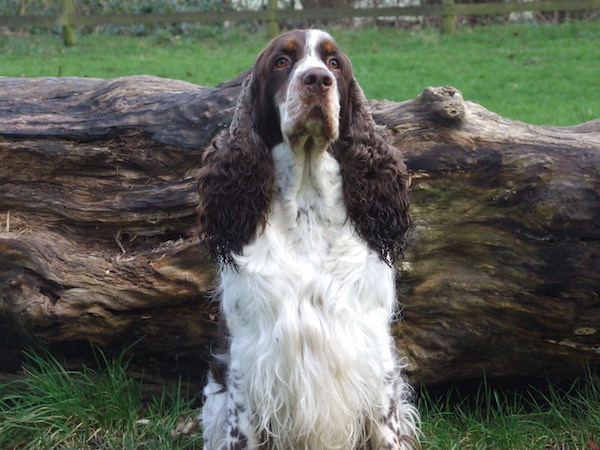
“My dog's name is Brogan, he will be nine in February 2022.
I have always suffered with hidden disabilities but in 2017 I was diagnosed with Fibromyalgia and Polymyalgia Rheumatica this has had a massive impact on my life, my son gave up his job to become my full-time carer.
Some time ago, Brogan started showing an interest in my health problems. If I needed help getting up from the chair he would come alongside me so I could use him as something to lean on. When my feet get too cold, he lies on them to warm them up. When I’m down, he is always by my side to cheer me up and just recently he awoke me from slipping into a diabetic coma when my blood sugar levels dropped very low.
We are currently teaching him to pick items up to put in the bin.”
Jaffa
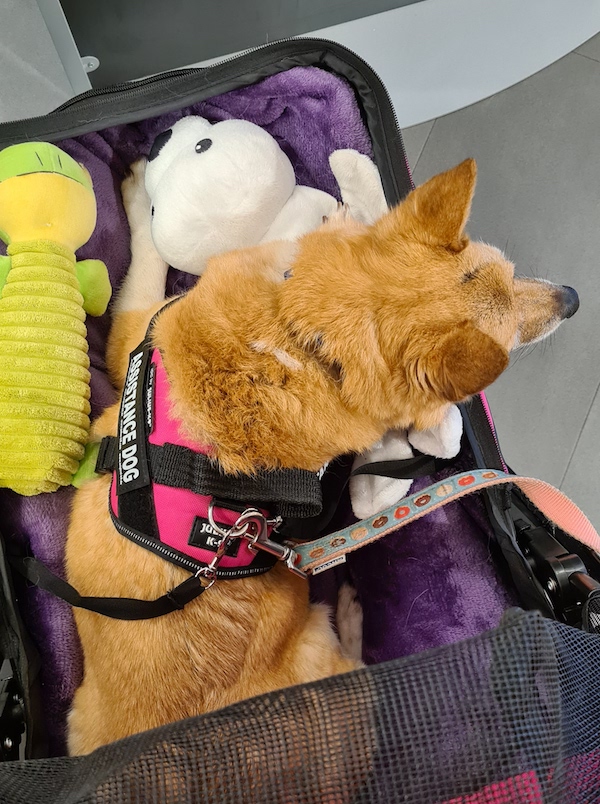
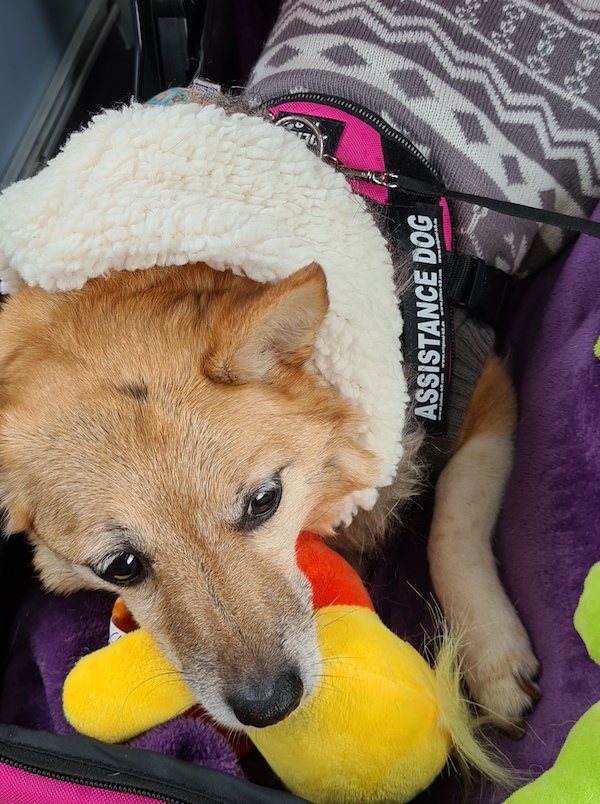
“My name is Nicole, I'm 35 years old & have Asperger’s (autism) & anxiety. I wasn't diagnosed until I was 21. When my partner is at work I have to go out & get the bits of food & essentials. Until a few weeks ago, when it started to get colder, I took our corgi cross (Jaffa) out to the shops with me in her dog stroller. I spoke to all the head offices of the shops I go in & as long as she has a harness saying 'assistance dog' & stays in the stroller, I'm absolutely fine. A lot of the staff have been great, especially the manager in home bargains on Talbot Road in Blackpool, she's amazing. She said that if I need her to come round & get the shopping, just ask. She always stops & chats & asks how I am. When I take Jaffa with me, I rarely panic & she keeps me calm.”
Easing anxiety and coping with depression
Animals aren’t limited to helping us in physical ways. They can also help soothe and improve our mental wellbeing. Almost any animal can be used for this purpose, from fish to birds, rabbits and cats.
Tali
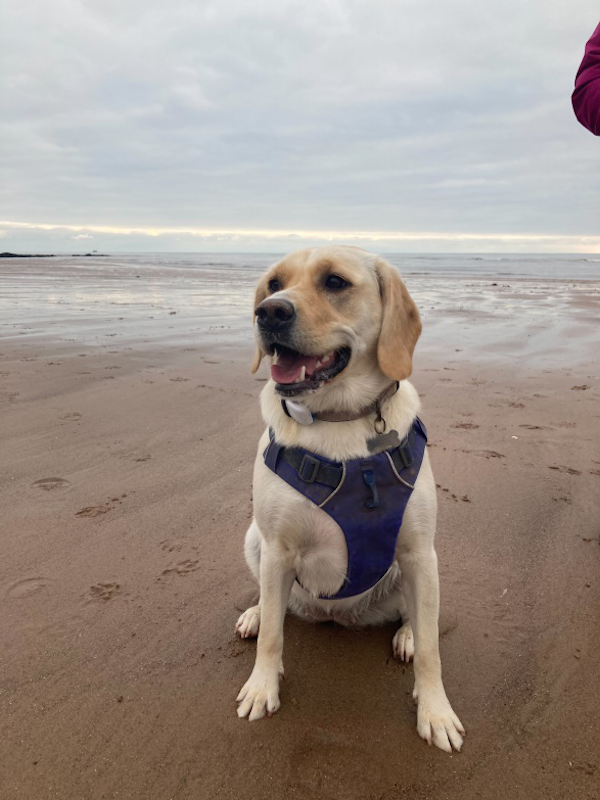
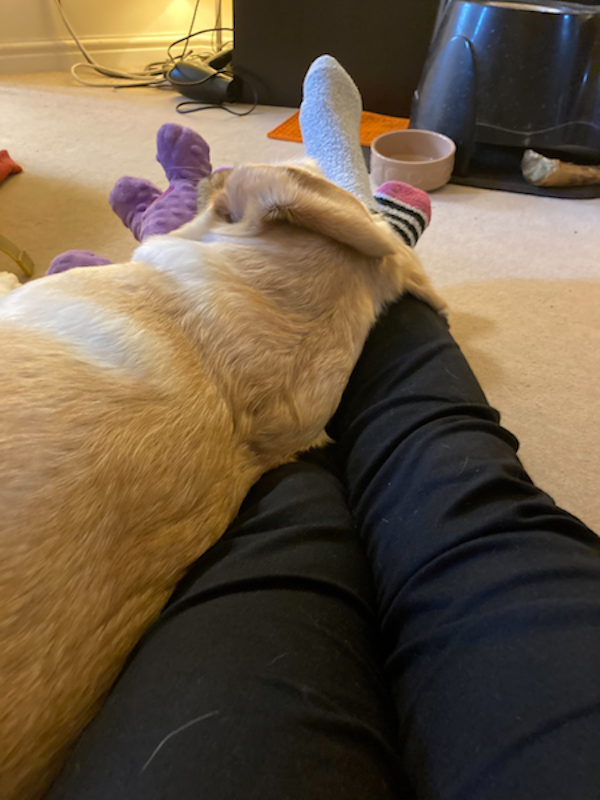
“This is the family dog (Tali) she lives in the southwest and has become a huge part of our lives. She turns two in February and provides a lot of support, not only to my parents and to my sister, but also to me. I’m her aunt and have struggled with my severe depression and anxiety recently. I went out to spend some time with my sister and to talk, she came over and lay on top of my legs while we were talking. She handed me some of her toys, she also licked me to show how much she loved me, this really helped as I felt secure and comforted as I talked to my sister. It was almost as though she had a sixth sense that day. She really is my private therapist! I feel that I can go on a walk, talk to her and in some ways it helps. She is the reason I continue to fight to get better. I don’t know where my family would be without her.”
Austin & Leo
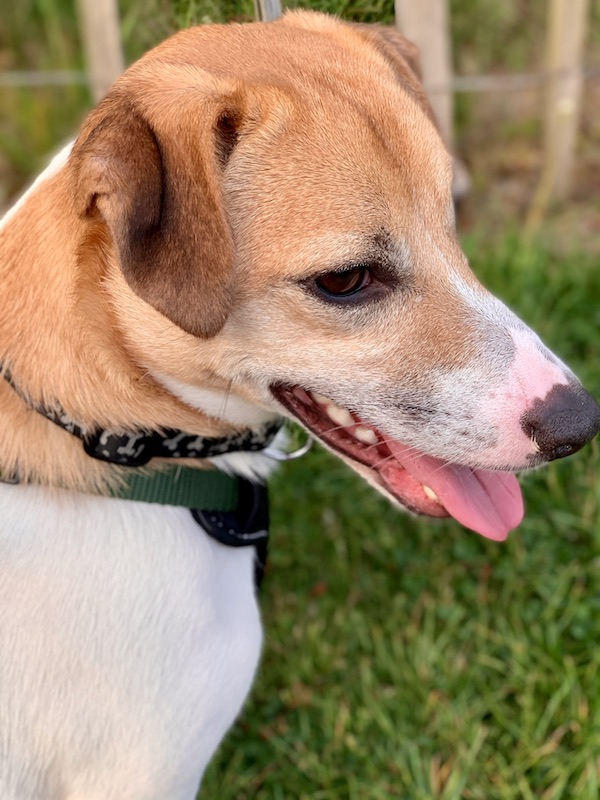
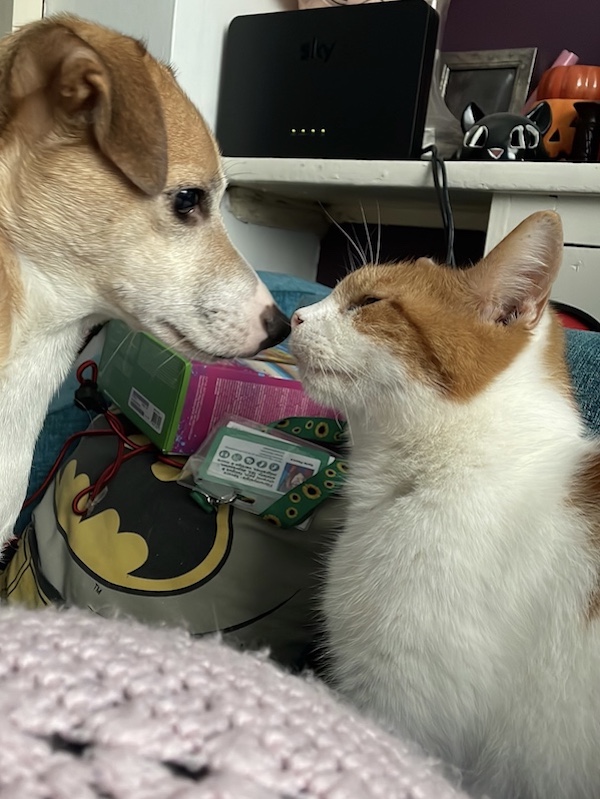
“We got our dog Austin just before the first lockdown in the UK. He is meant to be my other half’s dog, but since day one has been my shadow. When I am suffering from severe anxiety attacks he is there to give me cuddles and tries to lick the tears away. He’s pretty much always by my side and has learnt how to react and sit differently, depending on how sore I am that day.
Last year we also adopted a cat, Leo. Although he is not as in tune with me and as affectionate as Austin, he still checks on me if I’ve been crying or been asleep for a long time from the fatigue and gives me cuddles when I need them.”
Philip's cat
“I love my cat very much, she has helped me with my anxiety and she has been a big help in lockdown number one and two. She sometimes comes on Zoom meetings with me and lets me know with a big meow that she is here. She has been there in my hour of need, she likes to sit on my knee and purr. When my support comes in, she sits on their knee. She really makes me happy when I am feeling low, we have had some good fun together. She has even been on my YouTube channel and TikTok. She likes to sleep in warm places and she watch’s TV with me sometimes. She goes to the vets to be checked out once a year. The vet is very happy with her. She gives me licks on my hand and gives me nose rubs. She is a million dollars.”
Animals, autism and emotional regulation
For autistic children, studies have found that when animals, such as dogs, cats, and even guinea pigs, are present they can experience less anxiety. Part of this lies in the fact that animals are non-judgmental, accept us for the way we are and provide unconditional love. Children are also less likely to withdraw from social situations when their companion animal is with them.
Jaq, Gus & Lady
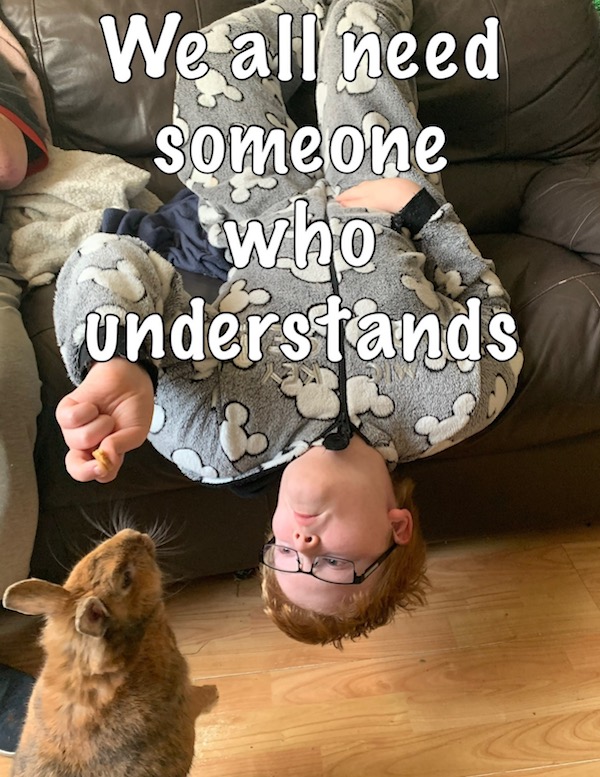
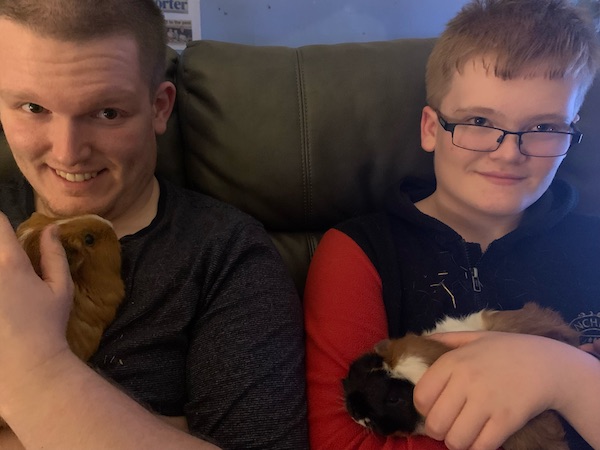
“My eldest son Conor is 25 with ASD, epilepsy and sensory. Rory is 15 with SPD, anxiety and PTSD. We’ve got two guinea pigs called Jaq and Gus, named after the mice from Cinderella. Both boys said stroking the pigs de-stresses them. The guinea pigs chatter too, so it sounds like they have conversations and they are good listeners. They are happy to lie on the boys being stroked and talked too. The pigs have their favourites and who they want to go to, especially if Rory has his fluffy onesie on. We had a bunny too, but sadly she died a few months ago. She was called Lady and had the run of the house. She always knew when Rory had a bad day and would sit close to him being stroked or just sit near him. She was also funny, when Rory would sit upside down, she would just stand on her back legs looking at him.
At the beginning of lockdown both boys lost their routine and independence. It was a very stressful time for everyone, but more for a person with special needs. One Thursday night while doing the NHS clap, Rory noticed two little dogs on the next block and over the weeks struck a bond. We were asked if both boys would like to help walk them (one of the dogs belonged to an old lady who couldn’t get outside) so both boys took over walking her and, nearly two years later, they still take her out. Now they have their routine back, taking this little dog out and both are enjoying it too, especially Tilly the dog. Their friendship with her is lovely and they all look forward to seeing each other every day.”
For autistic adults, animals provide similar benefits and often help calm someone in moments of anxiety – petting, hugging, or having a dog apply pressure on the person by using their paw or lying on them creates a calming effect.
Kia
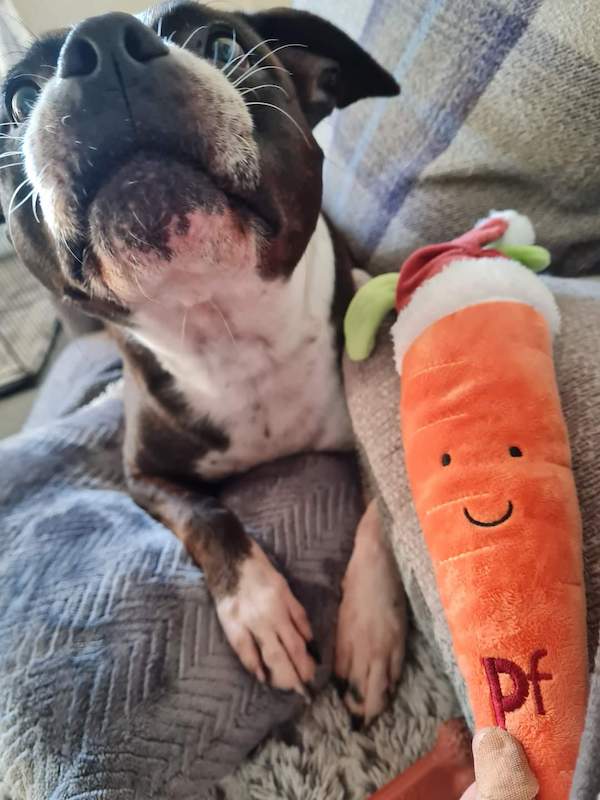
“My dog's name is Kia. She's 7 years old and a rescue dog.
She's my best friend and helps me through so many struggles every day.
My name is Eve, I am diagnosed with autism spectrum disorder, attention deficit disorder, social anxiety disorder and low mood (aka depression).
My dog Kia helps me by laying on my leg when I'm having a meltdown or if I'm upset because of a tough sensory day, she gets me out the house even if I am not feeling the best that day.
She inspires me to be the best version of myself. We do not know what she went through before we got her, but we still wake up to her wagging her tail at us every day and trusting us full heartedly. She means the entire world to me and I'm so glad she chose me that day and I will always do my best to make her happy.”
The constant companion
For all of us, but particularly those with anxiety or depression, animals can improve our mental well-being by reducing tension and improving mood, as well as being loving companions. They have even been found to lower blood pressure and reduce stress hormones and can be trained to disrupt impulsive or self-harming behaviour.
George
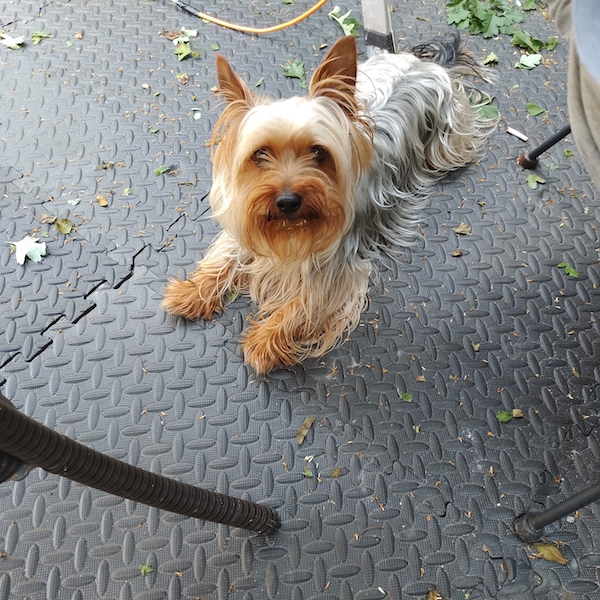
“This is George my silky terrier. I recently had to quit my job as I had too much time off and they bullied me into leaving the job of support worker which I loved. I have been really low and in a dark place and one day I got really upset and when George saw me crying, he gave me kisses and sat on my knee for cuddles which cheered me up, he means the world to me.”
Daisy
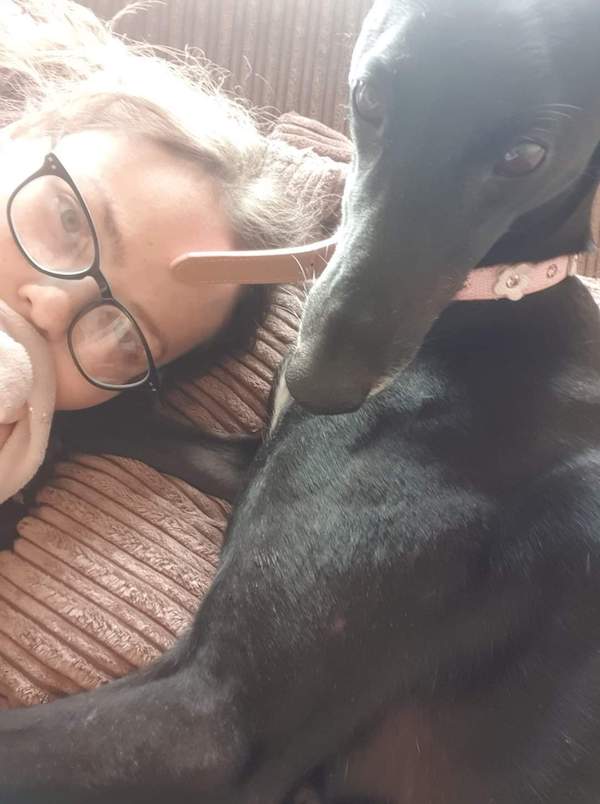
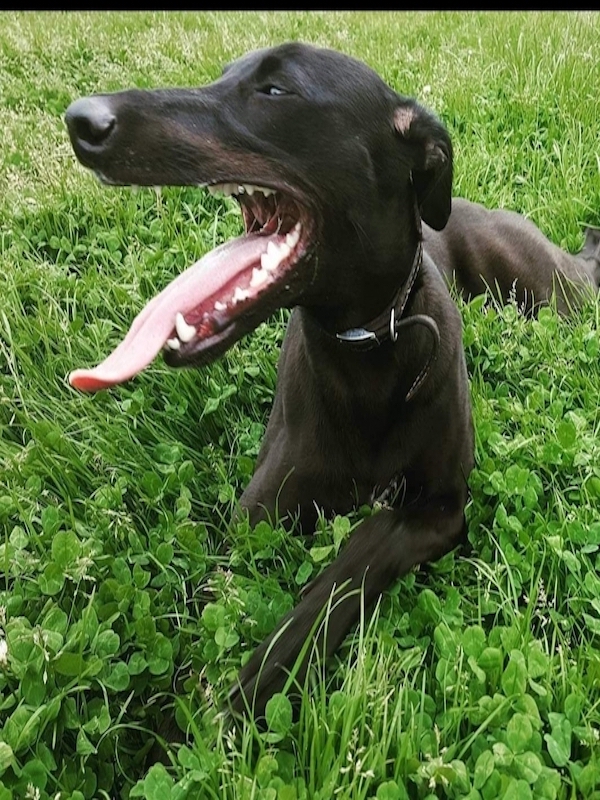
“My name is April and I am 30 years old. I work on social media for a fashion retailer. I have several invisible conditions: type 1 diabetes, POTs (postural orthostatic tachycardia syndrome), gastroparesis, asthma and a thyroid condition. My conditions affect me every day and it’s certainly a juggling act trying to manage them all together. When I developed POTs and gastroparesis, I lost a lot of confidence and became housebound for a while. It's hard for people to understand when I get sick in public, they often think I'm drunk so I would get judged a lot.
Daisy is my dog but she's so much more. She's also my best friend. She's a lurcher and will be seven in December. She's not a trained service dog but that doesn't matter. Daisy has helped bring my confidence back. She doesn't judge me for what she can't see. Instead she loves me, Chronic conditions and all. She's always there during my worst flares, when I'm in pain and she just lays her head on me, when I'm crying on the bathroom floor because I'm being sick again from a gastroparesis flare, she's right there with me. I honestly don't know what I'd do without her, she keeps me going in the hardest times. She never leaves my side. They say dogs can sense when something is wrong and Daisy knows when Mummy's not having a good day and she knows how to make it a little better.”
Vets that support the Hidden Disabilities Sunflower
Sometimes our animals need to pay a visit to the vets. When this happens, it would be good to know that the veterinarian you're visiting was there to support both you and your animal.
Penny Clarke at Avonvale Vets in Warwick is a member of the Hidden Disabilities Sunflower and is ready to offer you the additional support you may need when you next have to take your pet in for a check-up:
“Avonvale Veterinary Centres joined the Hidden Disabilities Sunflower lanyard scheme because everyone should feel comfortable, safe and supported while in our practice. Every day we feel privileged to work with some amazing pets but we also care about their humans too! Whatever it takes, we're happy to accommodate; whether it's a longer appointment at a quieter time or physical help carrying a pet. We're very proud when we receive an email from a client telling us what a difference it has made to their visits to our practice.”


